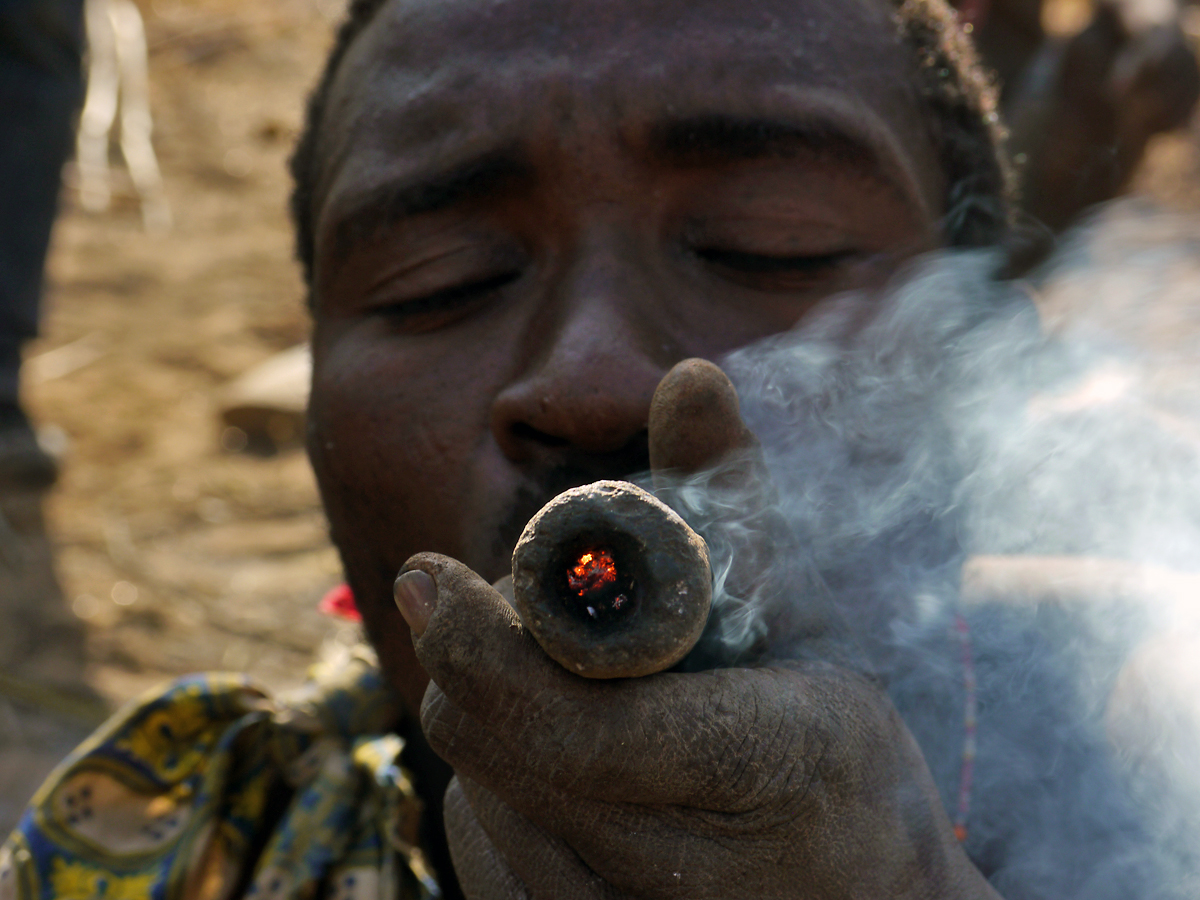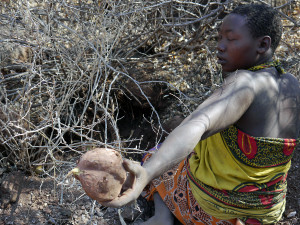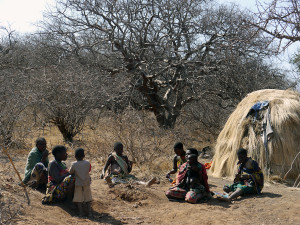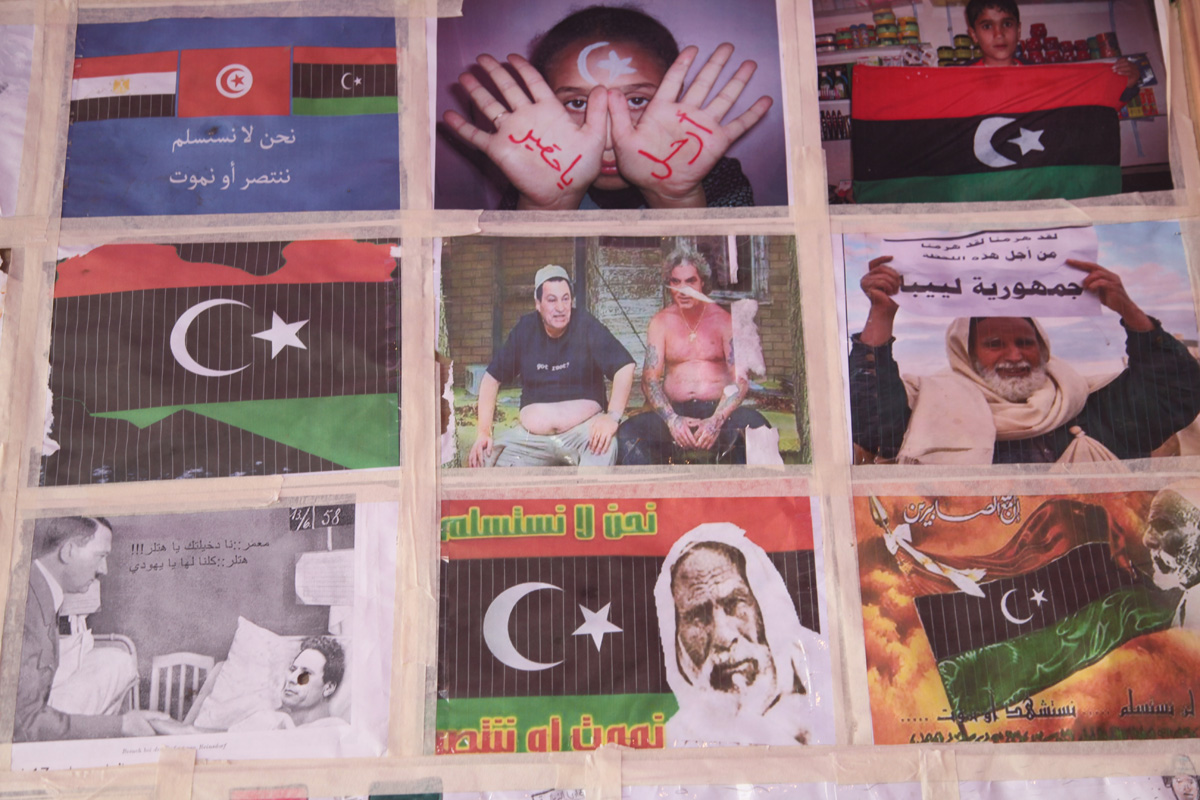I think it was hearing their unique click language which just made me go bonkers. I fell in love with it the first time I saw the film “The Gods Must Be Crazy” and I thought I will most likely never ever be able to hear it alive. For this single reason, I ended up in shock when I visited the Hadza together with a group as part of eco tourism of today. I wasn´t prepared when they started to talk. It must be one of the most beautiful languages on earth! Not only is it one of the oldest spoken languages alive on earth today, it is unique and not related to the bushmen of the Kalahari. I couldn´t hold back and I filmed and took photos like a madman, like I was doing a professional assignment. Afterwards I begged my clients for forgiveness and they said it was ok and that was who I was. Not much they could do about that. And they weren´t as taken as me as regards to the visit to the Hadza. The group was split in two when it came to visiting people like the Hadza and the Masaai. One part didn´t like it too much, mainly due to the fact that they felt they exposed their own material wealth and richness among these people who they found utterly poor. The other part found it enthralling and wanted to help. And this is a tricky question. Visiting people on the fringes of modern society. Some say they should be left alone, but in today´s world, that isn´t possible. The reality for people like the Hadza and Masaai is that they´re loosing land dramatically quick and soon have nowhere to be. So I am convinced sustainable tourism is one of few means to prologue their unique way of living. Even if there´s an uncomfortable intruding feeling of being at the zoo whilst visiting them. But such is the world we live in. And like the great animals of the savanna, they´re still wild and free to a certain degree. It isn´t an easy topic.
Personally I loved the visit. I enjoyed their calm ways to go about their life on expose for the visitors and sure, they did all the expected touristy things, like letting us try one of their bows, they showed us how to make a fire the old traditional way, they showed us how the Hadza women gather and dig for roots, we tasted both game meat and roots and they kind of showed us around the temporary camp they had set up. Sure, at the end, they wanted us to possibly by some necklaces or bows they had made for sale, but they didn´t push for it, as for example some of the Masaai clans in Kenya do. Otherwise they did their normal daily chores at that time of the day. Too late in the day to forage or hunt, time just sit around and do daily chores, before dusk. The local guide who accompanied us came from another tribe and had once upon a time left his village against the wishes of his father, to get a Western education. Something all clients liked. Something I once again spend a lot of time thinking about. At the end of it all, having two daughters, I believe education is a must to survive today. But it isn´t for everyone.
The life of the Hadza is definitely under threat. It is said there´s maybe 1000-1300 of them left, a third of them involved in a traditional life of hunting and gathering. But of course, as with all other original human beings, modern life is encroaching fast. In Hadza´s case it is loosing land plus other people moving in with their cattle. And cows just scares away wild animals and they eat all the plants that the Hadza use for their diet. Cattle and sheep is a disaster for most original people on a global scale. And, the arrival of tourism have brought documentary film makers, who have made the Hadza available for a global audience and as always there´s a backlash to everything. The arrival of alcohol is the most damaging. In one case, rich and incredibly insensitive and stupid emiratis, wanted to buy their own private game reserve for their own joy and that almost forced out a major part of the Hadza to make way for these utterly stupid emiratis. Luckily the global pressure from the tourism industry and others, eventually forced the government to end this shame.
*See the photoalbum from the latest safari here!




